Gov’t Resettles 1,600 Displaced Households In Nigeria’s Borno Community
This initiative is part of Borno’s plan to close all existing IDP camps and resettle displaced persons to their ancestral homes or ‘any safe host community of their choice’ by 2026.
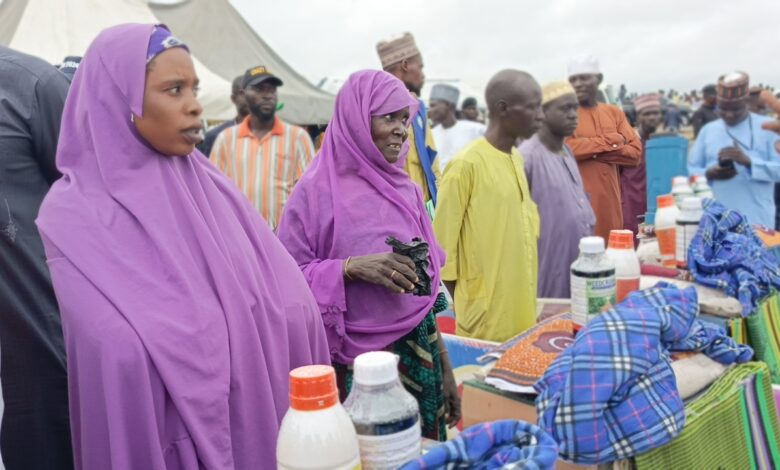
The Borno state government has resettled 1,600 households, comprising 9,600 internally displaced people (IDPs), from Bama’s largest displacement camp in Ngurosoye, North East Nigeria.
Ngurosoye is one of the villages recovered from insurgents in the Bama local government area. While the return to the community brought joy to the beneficiaries, not all 1,600 households have permanent homes there.
The state governor, Babagana Zulum, explained that while the original community residents will occupy the 500 permanent homes, the remaining 1,100 households, primarily from neighbouring areas, will reside in temporary shelters built within the community. These arrangements will remain in place until security conditions in their hometowns improve.
The displaced persons in temporary housing come from various towns, including Buhari, Adamri, Zaramri, Mairamri in Soye A, Dambiya, Shawn I and II, Makingari, Bulabuli Ngaura, and Diwa Ngaura in Jodri.
This initiative is part of Borno’s strategy to shut down all existing IDP camps and resettle displaced persons to their ancestral homes or ‘any safe host community of their choice’ by 2026.
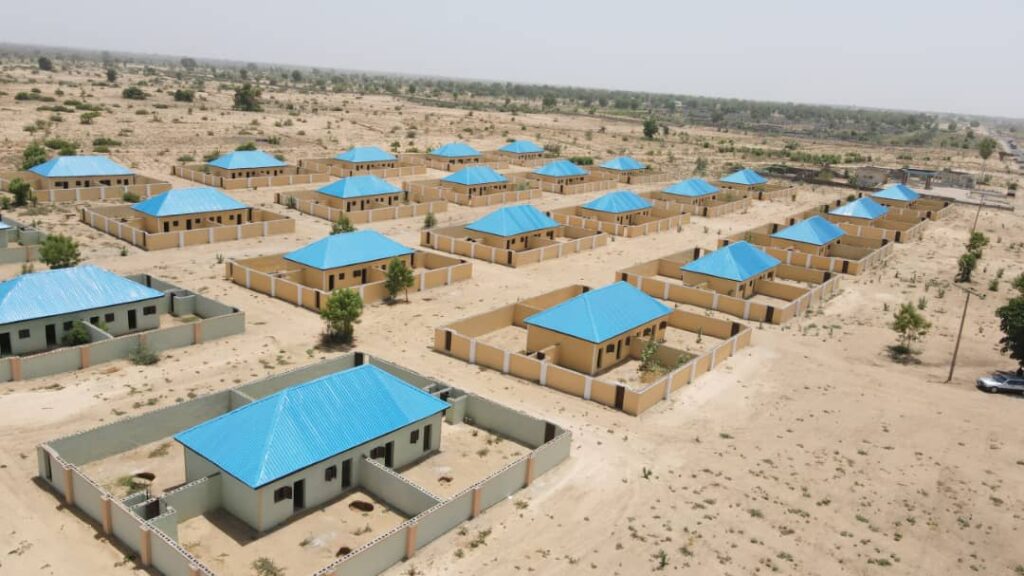
To support their resettlement, the returnees received free food items, bedding, farming tools and inputs, and clothing. In addition, a cash grant of ₦50,000 ($31) was provided to the head of each household and an additional ₦25,000 to the wife. According to Abba-Jato Maijamaa, head of the local relocation committee, this financial assistance is intended to help families establish themselves outside the IDP camps.
“The time has come for the people to sustain themselves through agriculture on their lands,” said Zulum, highlighting the importance of self-sufficiency.
He also outlined plans to build an additional 500 permanent homes and 2,000 temporary shelters in Darajamal village for more displaced people from the Bama IDP camp.
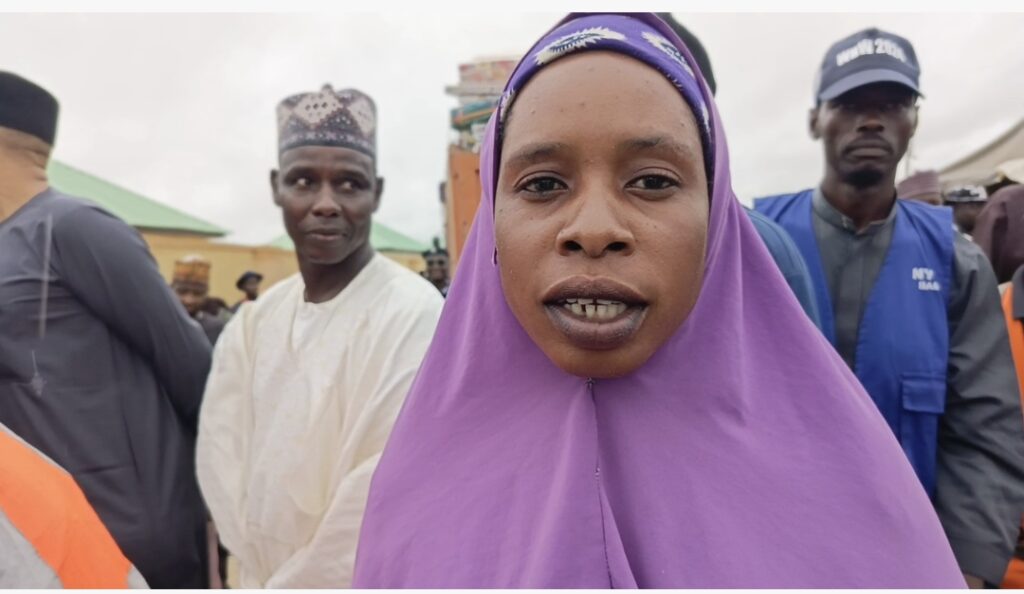
One of the resettled IDPs, Falmata Kachalla, a widow with six children, said the house gift means a lot to her family.
“For the past six years, my children and I lived at the Bama IDP camp, where we depend mainly on handouts from the government and humanitarian organisations. Life was tough, but thanks to the periodic support we get from the government,” she said.
Falmata received a full share of the house and relief materials befitting the head of a household, as her role changed many years ago following the death of her husband, who was killed during the peak of the Boko Haram insurgency.
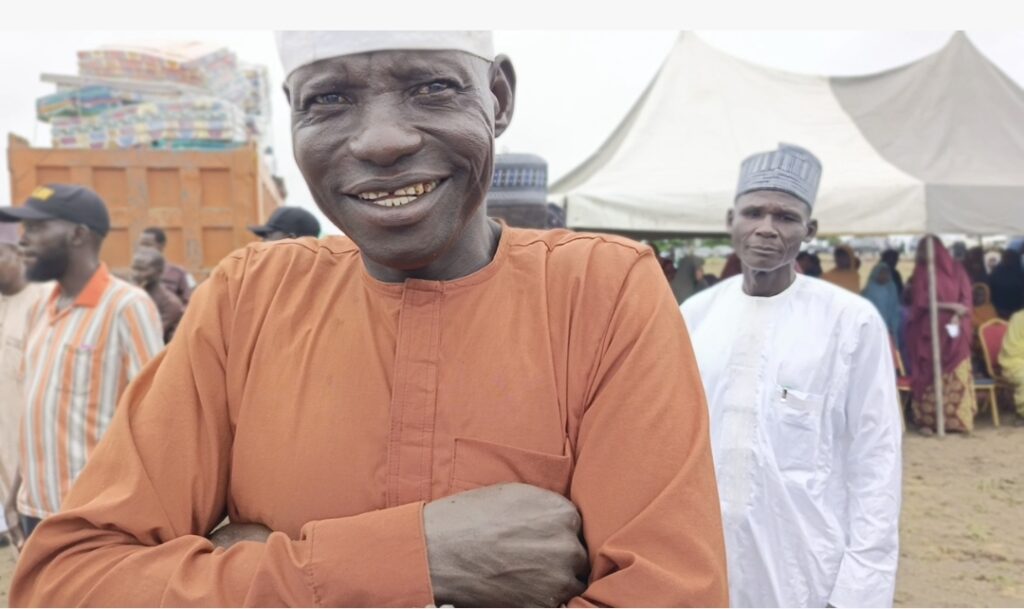
Malam Karagana, a middle-aged father of 19 children and husband to four wives, beamed with a smile as he received food, cash, and non-food palliatives, and access to two two-room self-contained apartments.
“We are so grateful to the government for giving us this house and other items,” he said. “This will help us have a decent life once again.”
It is unclear how Malam Karagana plans to accommodate his family of 24 members in his small cottage home, but he believes that what he has now is better than the quality of life he experienced in the IDP camp.
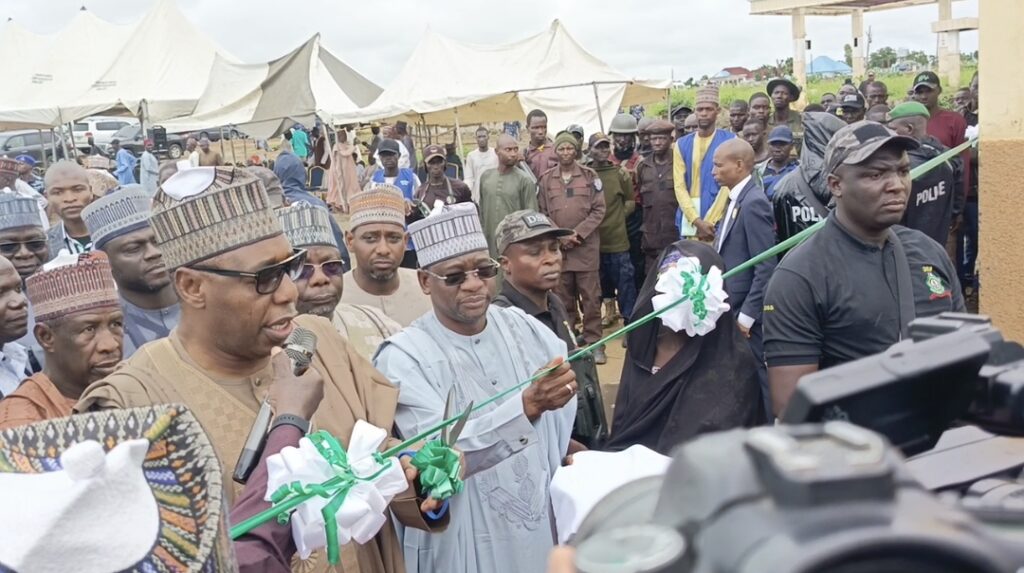
The UN Office for the Coordination of Humanitarian Affairs (OCHA) reports that over 2.2 million people are internally displaced across Borno, Adamawa, and Yobe — collectively known as the BAY states. Of this number, 82 per cent or 1.8 million of the IDPs are in Borno alone.
While the situation remains dire, there are signs of progress. Approximately 1.7 million individuals have returned to their original homes or nearby areas since August 2015. Borno state, most affected by the conflict, has facilitated the resettlement of around 287,000 displaced persons.
Support Our Journalism
There are millions of ordinary people affected by conflict in Africa whose stories are missing in the mainstream media. HumAngle is determined to tell those challenging and under-reported stories, hoping that the people impacted by these conflicts will find the safety and security they deserve.
To ensure that we continue to provide public service coverage, we have a small favour to ask you. We want you to be part of our journalistic endeavour by contributing a token to us.
Your donation will further promote a robust, free, and independent media.
Donate HereStay Closer To The Stories That Matter




